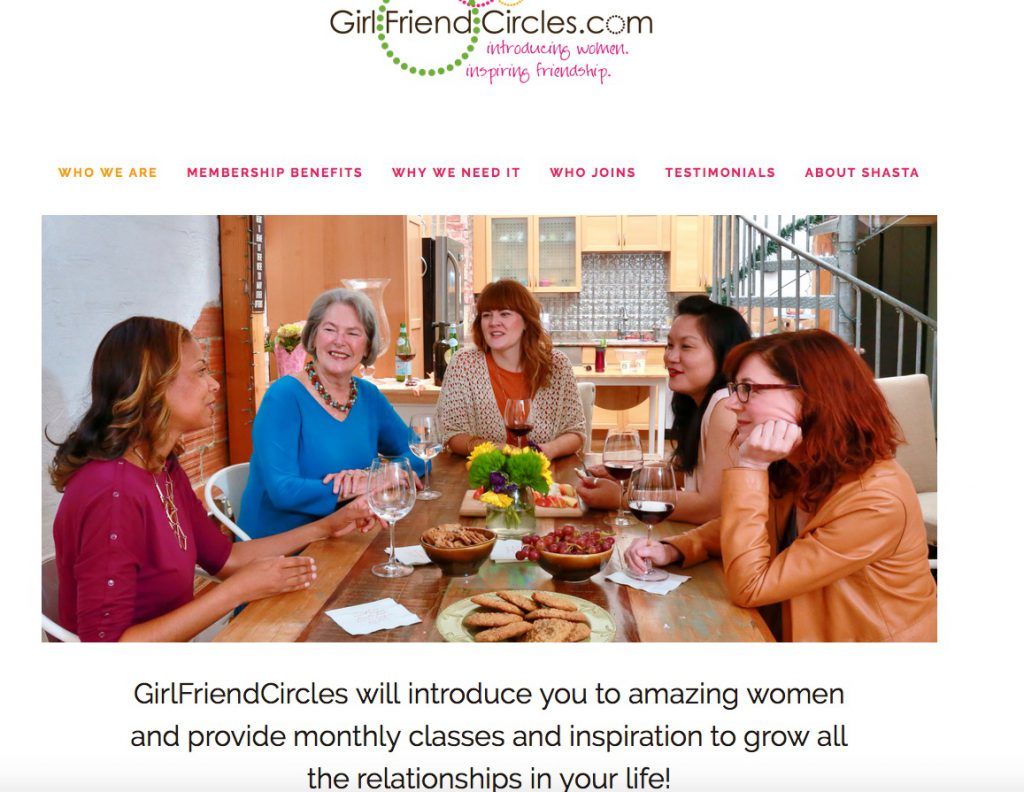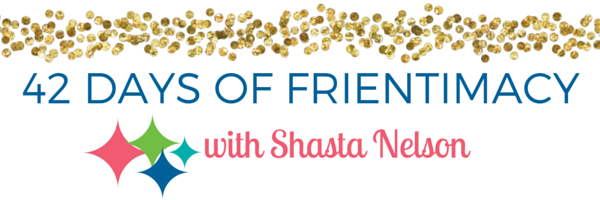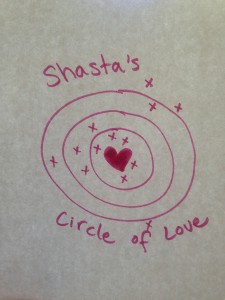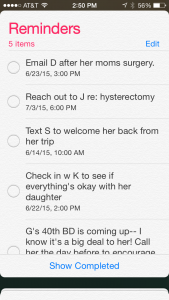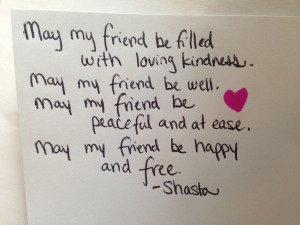"She doesn't like you..."
"You'll sound stupid if you say that..."
"She's stuck-up, she thinks she's better than you..."
"Why don't people every write me back or respond to my invitations?"
"What if I share something vulnerable and she judges me?"
The negative voices in our heads are relentless.
And they are, unfortunately, a very common, even normal, human experience.
Our "Negativity Bias"
Science consistently shows that we've been wired with a bias toward negativity. We're much quicker to asses, even expect a threat; than we are to look for opportunities. It's a matter of survival. If an animal misses an opportunity to eat-- he can find another one; but if he misses a threat of someone trying to eat him-- then that's pretty much a done deal. We are instinctively more worried about our protection than we are about our growth and pleasures.
These are some great examples from The Happiness Hypothesis:
- "In marital interactions. it takes at least 5 good or constructive actions to make up for the damage done by one critical or destructive acct.
- In financial transactions and gambles, the pleasure of gaining a certain amount of money is smaller than the pain of losing the same amount.
- In evaluating a person's character, people estimate that it would take twenty-five acts of life-saving heroism to make up for one act of murder.
- When preparing a meal, food is easily contaminated , but difficult to purify.
Jonathan Haidt continues by saying,
“Over and over again, psychologists find that the human mind reacts to bad things more quickly, strongly, and persistently than to equivalent good things. We can’t just will ourselves to see everything as good because our minds are wired to find and react to threats, violations, and setbacks.”
How We Can Respond
Since so much of our reaction is hard-wired and instinctive, the goal isn't to never have these thoughts; but rather what we are aiming for is
- Greater awareness that this is, in fact, our tendency,
- Better skills at then processing the information that is coming in,
- And, then not making decisions out of fear when we aren't actually in danger.
This reminds me of the research I shared in Frientimacy about what researchers discovered about rejection. We ALL feel it. No matter how emotionally healthy we are-- we all feel the pain of being left out, or even the perception of being left out. We can't not feel rejection any more than we can not feel pain when kicked in the stomach.
What we can do is get better at identifying that pain more quickly--naming what we're feeling--and then figuring out the best strategy for how to move ourselves back to a place of peace.
Experts in this field suggest that practices that create new thought patterns-- such as meditation, some drugs, and cognitive therapy-- can indeed help us. It is definitely worth the conscious effort of doing what we can to get ourselves out of the trap that so often leaves us feeling rejected, unlovable, or hopeless.
Responding in Friend-Making Situations
Far be it from this blog post to do the work of being able to replace all our thought patterns with loving and healthy ones, but here are a few steps we can take immediately:
- Catch Yourself. More Often. More Quickly. Becoming aware of this negativity bias is definitely the first step of growth. To see where it pops up, what you say to yourself, and how it taunts you is where maturity begins. We can can't change what we don't see. So with as much compassion as possible, let's start pointing it out "Oooh that's your fear talking..." "Oh that's your Inner Mean Girl* bullying you..." or "yep, that's me totally withdrawing because..."
- Show up with Curious Love! As parents watching their 3-year old have a melt-down in a public area knows-- when we see that tantrum we have several options: 1) ignore it and act like we don't see it; 2) scream louder and try to shame them into submission, or 3) get down on their level and ask a few questions. When it comes to my inner critic and fear-- I've found that the 3rd option is the only one that creates change because she usually believes that her fear is legitimate and that she's trying to protect me from something like loss, danger, or rejection. So to the best of my ability-- in that moment or later in reflection-- I try to ask questions such as a) What are you most scared of? b) Because if that were true, what would it mean? c) What are you trying to protect me from experiencing? (And to that one-- I often find myself thanking her for caring!) And that usually leads me into a conversation about what I really want and what I'm willing to do to get it.* (See * below for more info on this process because it really is more than a blog post will allow! Crying tears!)
- And remember this is true for others, too THEREFOR don't leave them wondering! Therefor... let's do all we can to speak words of acceptance, safety, and affirmation louder than their inner voice, when possible. We can assume that everyone is approaching and interacting with us at some level of fear, skepticism, worry, or questioning. They are searching for clues as to whether they are safe and liked. So knowing this, we can make sure to give them as much evidence as possible that we won't bite, judge, or reject them! We can smile, look them in the eyes, thank them for calling/coming over, show curiosity to them by asking questions, nod our head to indicate we're listening, and always end a conversation by helping answer the question we know they'll have when they leave: "Does she like me??
- After meeting someone new: "I am so glad we met. I'm looking forward to following up with you to...."
- After rejecting an invitation: "Oh I wish I could come, but thank you sooo much for inviting me. I do hope you'll invite me again because I would love to do x with you."
- After time together: "That was lovely. Let's do it again sometime!"
- After someone shares something vulnerable, "Oh I can understand why you would feel x, but I'm impressed with how you did y. That took a lout of courage!"
We can choose so much more kindness toward ourselves as we remember that all of us-- me, you, and even all those women who look like they never worry one iota what others think of them-- want to be liked. We are prone to worry we're not. But oh how much we want it.
This month, I hope you practice balancing out that negativity bias in our world by showing the compassion to yourself and others that we all crave.
xoxo,
Shasta
*** This theme touches on this month's Friendship Focus in GirlFriendCircles, featuring Amy Ahlers, who is our teacher for the class "Is Your Inner Mean Girl Hijacking Your Friendships?" Join this month for FREE and you can download the class and all of our resources. Plus, on August 23 I will be doing a live Q/A call on this subject and modeling/sharing how I bring healing to my inner critic voices. All women welcome to join us! xoxo





 share them once more. Many of you joined us half-way through the year, missed a post here-or-there or just want to re-read some of the best ones to see how they resonate with you now.
1.
share them once more. Many of you joined us half-way through the year, missed a post here-or-there or just want to re-read some of the best ones to see how they resonate with you now.
1. 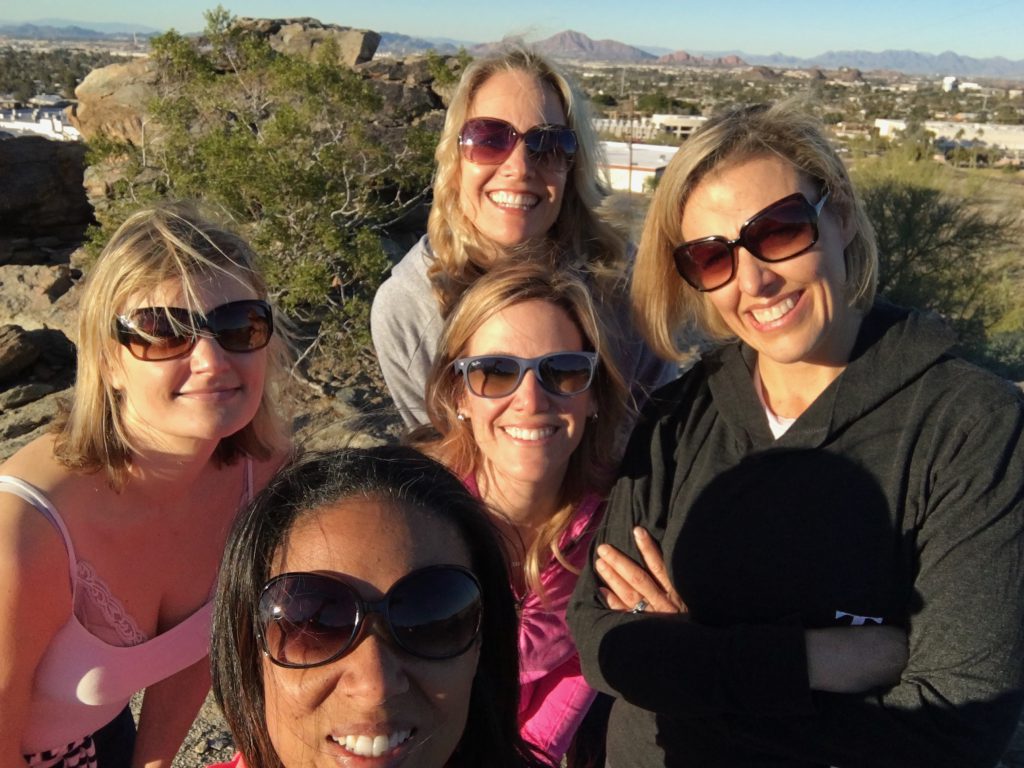
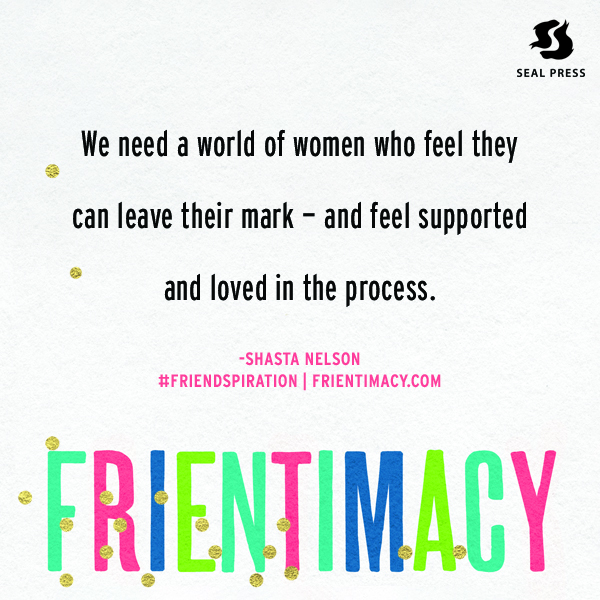
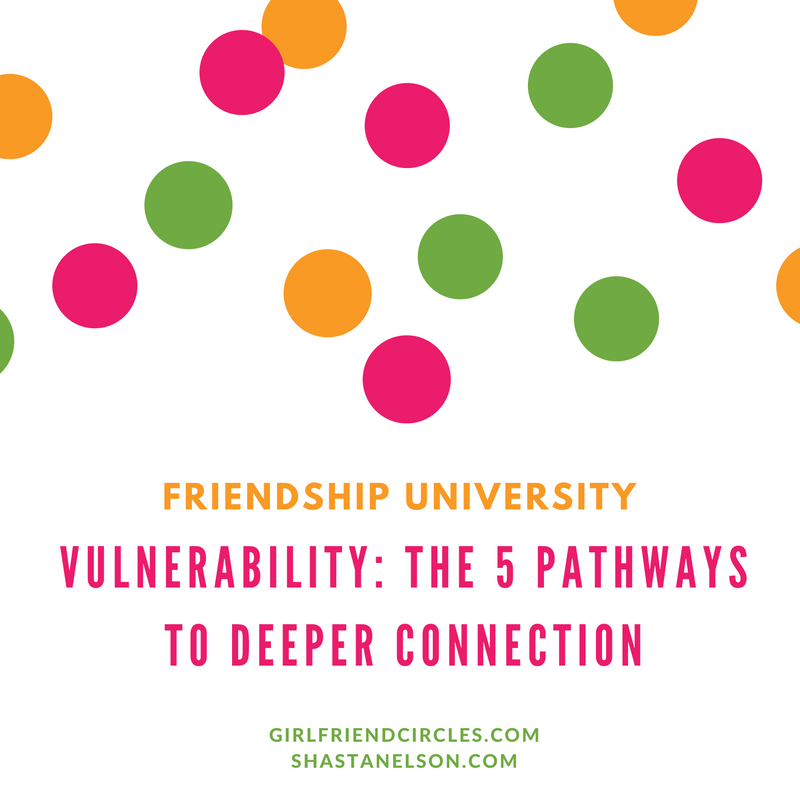

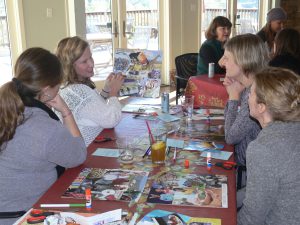
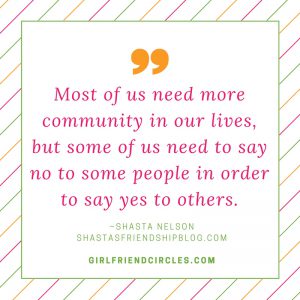 need to say no to some people in order to say yes to others.
need to say no to some people in order to say yes to others.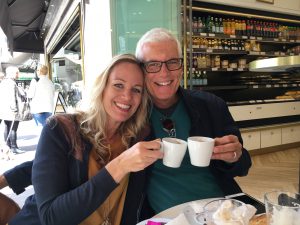
 for
for 